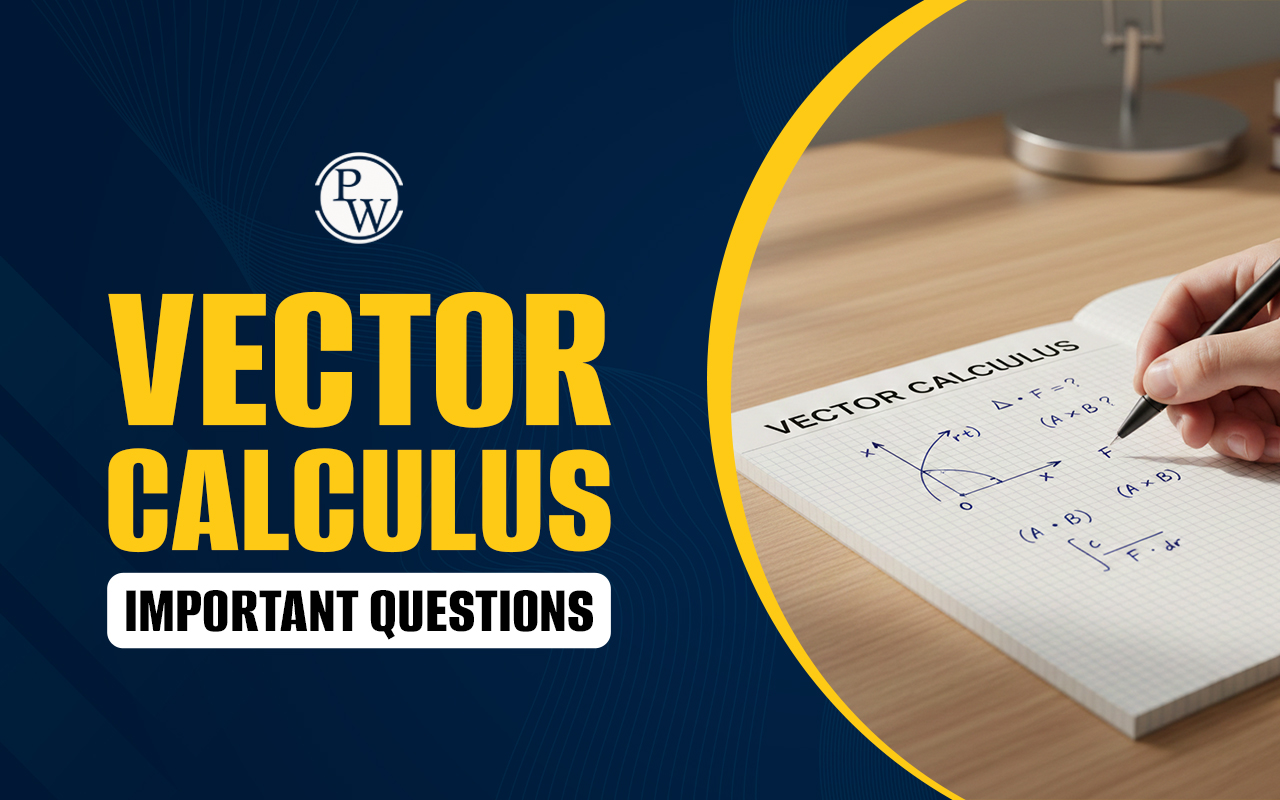
M.Sc Physics students can explore mysteries of the universe, the elegance of equations, and the principles that govern matter and energy. Postgraduation in Physics provides in-depth knowledge of both classical and modern physics. It also offers strong research opportunities and career pathways in academics, industry, and technology.
This course bridges the gap between undergraduate knowledge and advanced scientific exploration, preparing aspirants for challenging roles in teaching, research, and applied sciences. Here, candidates can explore M.Sc Physics eligibility, jobs, colleges, and other related important details to plan for pursuing this course.
M.Sc Physics Overview
M.Sc Physics's full form refers to Master of Science in Physics. This postgraduate program takes four semesters to complete. It focuses on advanced theoretical concepts, experimental methods, and mathematical applications of physics. There is a huge spectrum of syllabus covering classical, quantum, particle, and various other topics under Physics subject.
The M.Sc Physics program aims to enhance analytical, computational, and problem-solving skills, making graduates versatile for roles in research laboratories, academic institutions, and high-tech industries worldwide. Here is the brief overview of M.Sc Physics course details:
| M.Sc Physics Program overview | |
| Particulars | Details |
| Course Name | Master of Science in Physics (M.Sc Physics) |
| Duration | 2 Years (4 Semesters) |
| Course Level | Postgraduate |
| Eligibility | B.Sc. in Physics or related discipline |
| Average Fees | ₹20,000 – ₹2,50,000 per year |
| Top Entrance Exams | CUET PG, IIT JAM, BHU PET, JNUEE, DUET |
| Average Salary (Starting) | ₹4 – ₹8 LPA |
| Career Roles | Research Scientist, Physicist, Lecturer, Data Analyst, Engineer |
Note: M.Sc Physics course details may vary across universities and institutions. Candidates are required to check their desired institutions’ web portals to confirm the M.Sc Physics eligibility criteria, duration, and other details.
M.Sc Physics Eligibility Criteria
Candidates must confirm the M.Sc Physics Eligibility Criteria before applying for admission at any institution. To apply for M.Sc Physics applicants, most universities require a B.Sc. degree in Physics or a related subject, often accompanied by mathematics as an additional subject. Some institutions also allow candidates with engineering degrees if they studied sufficient physics courses. This flexibility ensures that only students with a solid base in physics progress to advanced studies.
Further, the general M.Sc Physics Eligibility parameters are mentioned below:
| M.Sc Physics Eligibility Criteria | |
| Criteria | Requirements |
| Educational Qualification | B.Sc. degree with Physics as a core subject |
| Minimum Marks | 50–60% in undergraduate degree (varies by university) |
| Age Limit | Generally, no age limit for admission |
| Additional Requirements | Some universities require mathematics at the UG level |
M.Sc Physics Admission Process
The M.Sc physics admission process is conducted in two major ways: merit-based and entrance exam-based. In the merit-based route, universities prepare a selection list based on undergraduate performance. However, most reputed institutions prefer entrance examinations like CUET PG, IIT JAM, or their departmental tests. Shortlisted candidates are often invited for counselling or interviews before final admission. Students should carefully track the admission notification of their preferred universities to ensure they don’t miss important deadlines or specific requirements.
| M.Sc Physics Admission Process | |
|---|---|
| Mode | Details |
| Merit-Based | Admission based on marks scored in an undergraduate degree |
| Entrance-Based | National/State/University-level exams conducted (e.g., CUET PG, IIT JAM) |
| Counselling | Shortlisted candidates called for counselling or an interview |
| Final Selection | Based on the merit list or the entrance exam scores |
Note: Candidates are required to always check individual university admission brochures for precise updates for different competitive examinations.
M.Sc Physics Entrance Exams
Entrance exams for M.Sc Physics course plays a vital role in determining admissions to top institutes. The most popular exams like CUET PG, IIT JAM, etc, can help candidates find admission in top universities of India. Generally, the exam patterns usually include multiple-choice questions testing core physics concepts, mathematical ability, and reasoning skills.
Here is the list of popular entrance examination for admission to M.Sc Physics program:
| M.Sc Physics Entrance Exams | |||
|---|---|---|---|
| Exam Name | Conducting Body | Mode of Exam | Subjects Covered |
| CUET PG | National Testing Agency (NTA) | Online (CBT) | UG Physics, Mathematics |
| IIT JAM | IITs | Online (CBT) | Physics, Mathematical Physics |
| BHU PET | Banaras Hindu University | Online/Offline | Physics & UG-level concepts |
| JNUEE | Jawaharlal Nehru University | Online (CBT) | Advanced Physics |
| DUET | Delhi University | Online (CBT) | UG Physics topics |
Note: The exam schedule and syllabus of the above-mentioned entrance test may change. Applicants must confirm the schedule with the official portals.
M.Sc Physics Syllabus
The M.Sc physics syllabus is designed to balance theoretical knowledge with experimental learning. Core areas of master’s in Physics programme include classical mechanics, quantum mechanics, electrodynamics, statistical mechanics, and condensed matter physics. Also, practical laboratory courses, computational physics, and advanced mathematics modules are included in the PG course.
However, universities often update the M.Sc physics syllabus to keep up with scientific advancements and research trends. The final year generally includes electives, seminars, and project work that allow students to specialise in their areas of interest.
| M.Sc Physics Syllabus | |
| Semester | Subjects Covered |
| Semester 1 | Classical Mechanics, Mathematical Physics, Electronics, Quantum Mechanics I |
| Semester 2 | Electrodynamics, Statistical Mechanics, Quantum Mechanics II, Computational Physics |
| Semester 3 | Atomic & Molecular Physics, Nuclear Physics, Condensed Matter Physics, Electives |
| Semester 4 | Particle Physics, Advanced Electives, Project Work, Dissertation |
Note: Both traditional and cutting-edge areas in Physics syllabus are taught in the universities. However, each institution may offer different curriculum and specialisations.
M.Sc Physics Core Subjects
The M.Sc Physics subjects typically remain common across universities. They include Quantum Mechanics, Statistical Mechanics, Electrodynamics, Solid State Physics, and Classical Mechanics. Each subject builds upon undergraduate knowledge and prepares students for advanced research, experimentation, or teaching. The core subjects are often accompanied by lab work and problem-solving sessions to deepen conceptual clarity.
Candidates can get a quick overview of the M.Sc Physics Core Subjects from here:
| M.Sc Physics Core Subjects | |
|---|---|
| Core Subjects | Focus Area |
| Quantum Mechanics | Wave functions, operators, Schrödinger equation |
| Electrodynamics | Maxwell’s equations, radiation theory |
| Classical Mechanics | Lagrangian and Hamiltonian dynamics |
| Statistical Mechanics | Thermodynamics, probability, ensembles |
| Solid State Physics | Crystal structures, band theory |
| Nuclear Physics | Nuclear models, reactions |
Note: Some universities may replace or merge core subjects depending on their curriculum design. Candidates must take care of this fact while taking admission there.
M.Sc Physics Specialisations
M.Sc Physics Specialisations programmes allow students to focus on specific areas of interest that align with their career aspirations. Major universities in India generally offer choices such as Astrophysics, Particle Physics, Nuclear Physics, Biophysics, and Condensed Matter Physics. These electives give students an opportunity to tailor their studies toward either academic research or applied industrial roles. Specialisations also influence dissertation topics, which often serve as a stepping stone to Ph.D. or research fellowships.
| M.Sc Physics Specialisations | |
|---|---|
| Specialisation | Scope |
| Astrophysics | Study of celestial bodies, galaxies, and cosmology |
| Particle Physics | Focus on subatomic particles and high-energy physics |
| Nuclear Physics | Research on nuclear reactions, reactors, and medical physics |
| Biophysics | Application of physics principles in biological systems |
| Condensed Matter | Study of solids, semiconductors, and nanomaterials |
Note: Availability of M.Sc specialisations depends on university infrastructure and faculty expertise. Prior to getting admission, candidates are recommended to check the availability of specialisation in their desired institute.
Top M.Sc Physics Colleges in India
Candidates can take admission to top M.Sc Physics Colleges in India through entrance examinations. From IITs and NITs to central universities like JNU, DU, and BHU, students have a variety of options. Private universities also provide well-structured programs with good laboratory facilities. Candidates can select colleges on the basis of faculty expertise, research infrastructure, placement opportunities, and affordability.
The table given below highlights some of the leading M.Sc Physics Colleges:
| Top M.Sc Physics Colleges in India | ||
| College/University | Location | Exam Accepted |
| Indian Institute of Technology (IITs) | Multiple cities | IIT JAM |
| Banaras Hindu University (BHU) | Varanasi | BHU PET / CUET PG |
| Jawaharlal Nehru University (JNU) | New Delhi | JNUEE |
| Delhi University (DU) | New Delhi | DUET / CUET PG |
| National Institute of Technology (NITs) | Multiple cities | IIT JAM |
| Presidency University | Kolkata | University Exam |
Note: College rankings may vary year to year depending on academic and research performance.
M.Sc Physics Fees in India
The fees for M.Sc Physics in India varies significantly depending on the type of institution. Central and state universities are more affordable options for students than private universities and IITs/NITs. Additionally, expenses like laboratory fees, hostel charges, and research costs should also be considered while planning finances.
| M.Sc Physics Fees in India | |
|---|---|
| Type of Institution | Average Fee Range (per year) |
| Central/State Universities | ₹20,000 – ₹70,000 |
| IITs/NITs | ₹80,000 – ₹1,50,000 |
| Private Universities | ₹1,50,000 – ₹2,50,000 |
Note: M.Sc Physics Fees in India is subject to revision by individual universities each academic session.
M.Sc Physics Books
M.Sc Physics Books form an integral part of mastering concepts. While lectures and labs provide guided learning, textbooks help deepen conceptual understanding and prepare students for exams and research. Classics like Concepts of Modern Physics by Arthur Beiser and Principles of Quantum Mechanics by R. Shankar remain popular choices. Many Indian universities also recommend works by authors such as H.K. Dass and S. Chand publications for mathematical physics and problem-solving practice. The table below lists some widely used references.
| M.Sc Physics Books | |
|---|---|
| Subject | Recommended Books |
| Quantum Mechanics | Principles of Quantum Mechanics – R. Shankar |
| Classical Mechanics | Classical Mechanics – H. Goldstein |
| Electrodynamics | Introduction to Electrodynamics – David J. Griffiths |
| Statistical Mechanics | Statistical Mechanics – R.K. Pathria |
| Mathematical Physics | Mathematical Physics – H.K. Dass |
| Modern Physics | Concepts of Modern Physics – Arthur Beiser |
Note: Book preferences may vary depending on the university syllabus and personal learning style.
Jobs & Career Scope After M.Sc Physics
Graduates of M.Sc Physics course enjoy diverse bright career opportunities across academia, industry, and research sectors. Many take up roles as lecturers or researchers in universities and institutes, while others enter industries like aerospace, electronics, IT, and renewable energy. Beyond traditional physics roles, many M.Sc graduates work as data analysts, software developers, or financial consultants due to their strong analytical and problem-solving skills.
| Jobs & Career Scope After M.Sc Physics | |
| Career Role | Average Salary (per annum) |
| Research Scientist | ₹6 – ₹10 LPA |
| Lecturer/Professor | ₹5 – ₹8 LPA |
| Data Analyst | ₹4 – ₹7 LPA |
| Physicist (Govt. Research Labs) | ₹7 – ₹12 LPA |
| Technical Consultant | ₹6 – ₹9 LPA |
Note: Salaries vary depending on organisation, location, and the candidate’s expertise in the Physics subject.
M.Sc Physics Future Scope
M.Sc Physics Future Scope is expanding due to fast paced advancements in science and technology. Candidates who pursue graduation with an M.Sc Physics courses can pursue Ph.D. programs in India or abroad. They can contribute to fundamental research in areas like nanotechnology, quantum computing, or astrophysics.
Materials science, electronics, and renewable energy are some of the leading sectors that require well-qualified Physics scholars. Furthermore, teaching and government research roles continue to be stable career choices after an M.Sc Physics.
Here is a brief overview of M.Sc Physics Future Scope to help select candidates for their prospects:
| M.Sc Physics Future Scope | |
|---|---|
| Future Pathway | Opportunities |
| Higher Studies | Ph.D. in Physics or Applied Physics |
| Research Careers | ISRO, DRDO, BARC, CSIR labs |
| Industrial Roles | Semiconductor, Aerospace, IT, Renewable Energy |
| International Opportunities | Research positions in foreign universities |
Note: Future scope in Physics depends on personal interest, research aptitude, and chosen specialisation. Candidates can join industries and academics as per their interests and potential, which will lead to huge differences in career scope.
M.Sc Physics FAQs
What is the eligibility for admission to M.Sc.. Physics?
Which exams are required for admission to M.Sc.. Physics?
What are the career options after an M.Sc.. Physics?
What is the average salary after an M.Sc.. Physics?










